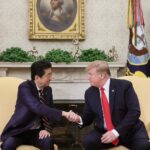Funabashi Haruo advances the importance of “loyalty” in ethical and sustainable business stewardship.
A leading furniture seller attracted a great deal of public attention due to its astonishing proxy fight between a father and his daughter a few years ago; the daughter won and seized the management position. It has now been reported that the furniture seller will sell itself because of its sluggish business performance in the last few consecutive years. At the time, some media outlets covered the family quarrel as a challenge of Western-style management against archaic Japanese-style management. To the daughter, who graduated from a foreign business school and obtained an MBA, many things her father did appeared to be old-fashioned and uncool.
I viewed the family quarrel in a different way. That is, the daughter’s behavior ran counter to moral standards to a significant degree. Filial piety is the essence of moral excellence (The Classic of Filial Piety). Because filial piety is the basis of human ethics, I am sure that those who are unable to practice filial piety are unable to practice other virtues either. Other virtues include justice, faith and loyalty. I thought that if a person did not have these virtues, which are necessary for living in human society, he or she would not attract people, and this way of living would soon become deadlocked.
It can be said that this case serves as a warning to many Japanese corporate managers. This is because there are many corporate managers who think it is more beneficial and trendy to aim to be management professionals who appear to be able to earn money immediately than to adhere to old-fashioned moral standards. Corporate managers who are obsessed with the rights of stockholders are particularly dangerous.

Confucius says, “When you saw someone, could you be sincere to him?”
In contrast, there is a way of thinking that emphasizes management that focuses on stakeholders. This way of thinking is that companies must be supported by stakeholders, such as local communities, customers, business partners and employees, as well as stockholders, and build good relationships with them.
You do not need to debate which way of thinking is superior in terms of sustainability.
But this stakeholder-oriented management is easy to talk about and difficult to practice. Because the interests of stakeholders do not always agree, specific actions for prioritizing particular people and making particular people endure are not always easy. The United Nations Sustainable Development Goals (SDGs), which have been trendy in recent years, contain flowery phrases, but it is hard to satisfy all these requirements. Accordingly, a practical path taken by many corporate managers is to list the measures for each stakeholder and publish an across-the-board report.
I hope that every time corporate managers take such action, they will not fail to think about each action in terms of justice, faith and loyalty.
Needless to say, justice means righteousness and faith means not deceiving people.
So what does loyalty mean? I would like to use this word in the context of meaning neither “loyal to the king and love the country” nor loyal to the company.
The Analects of Confucius says, “When you saw someone, could you be sincere to him?” This does not refer to a king and an organization. Loyalty literally means the heart of the heart; that is, sincerity. In other words, loyalty means thinking about other people’s matters as if they were yours and taking action. That is to say, loyalty means that when you take action for others, do not think about your own benefits. This is the essence of loyalty. In accordance with this line of reasoning, loyalty seems to be stewardship itself, which has also been stressed in recent years. The stewardship code, which is referred to by people, regulates the relationships mainly between investors and financial institutions representing investors. But the essence of their ethics is loyalty. This is not limited to finance and investments, but is also true of business and human lives.
FUNABASHI Haruo is a historian and CEO of the Sirius Institute Inc.








